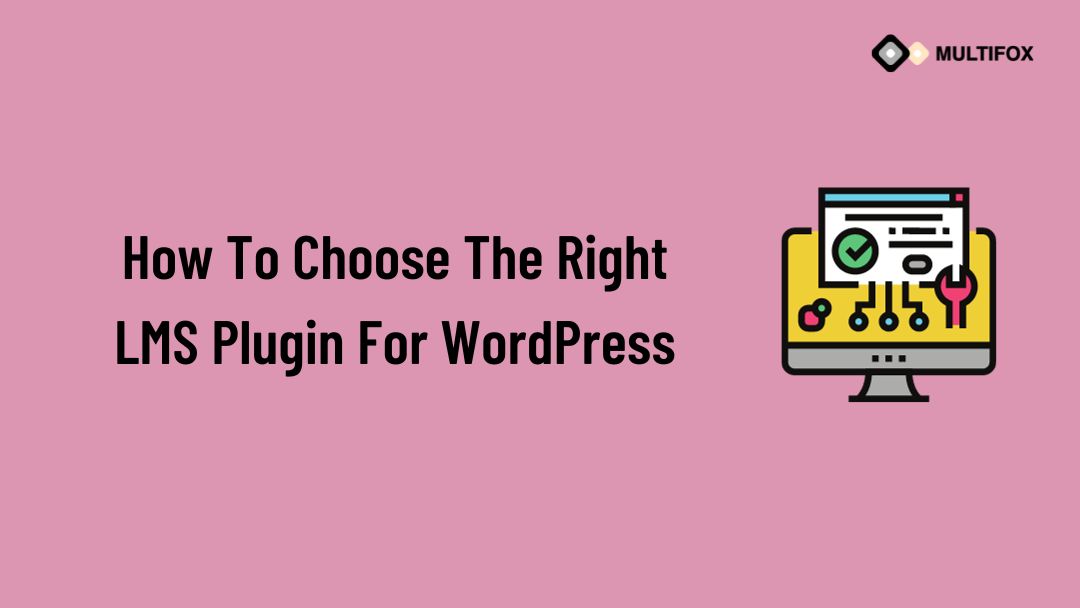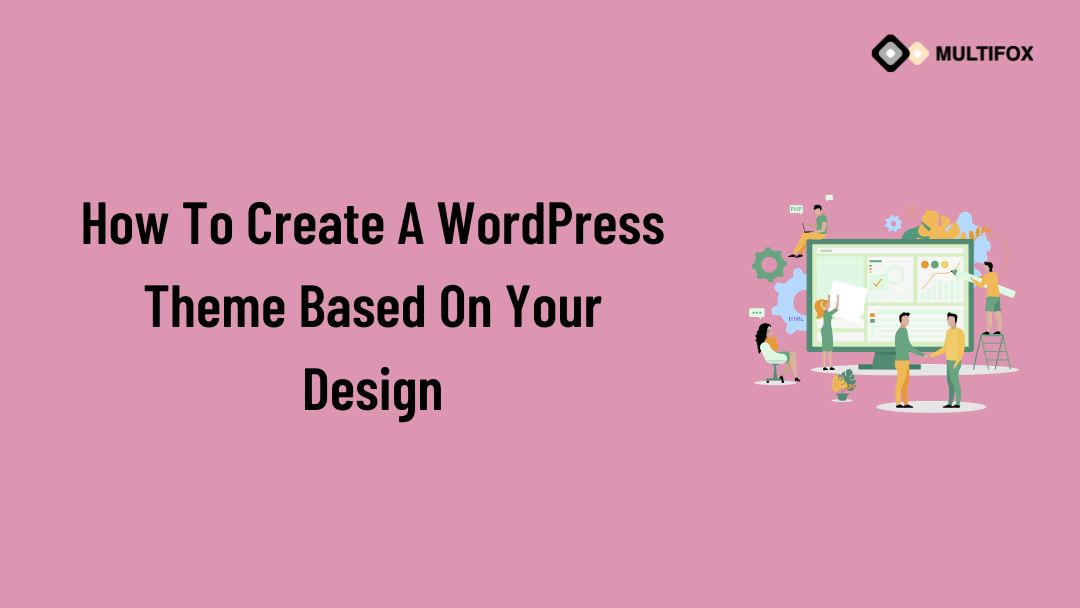SEO content is defined as the type of content that is written in accordance with various guidelines in order to play a role in...
If you’re planning on running or are currently running an educational website, then you should add an LMS or a learning management system plugin to get the best and most essential features for your platform. In this article, we’ll be covering some of the different ways you can choose the best LMS plugin for your WordPress website.
Table of Contents
What is a WordPress LMS plugin?
Before discussing how you know that an LMS plugin is right for you, let’s first briefly cover what a WordPress LMS plugin is.
A WordPress LMS plugin is a tool that integrates with the WordPress platform to add features to your website that are conducive to online courses and e-learning content.
The primary benefit of using a WordPress LMS plugin is the ability to create and manage online courses easily.
These plugins typically offer features such as course creation, student enrollment, progress tracking, assessments, and grading. With an LMS plugin, you can organize your course materials into modules or lessons, set up quizzes or assignments for students to complete, and track their progress throughout the learning journey.
Another advantage of using an LMS plugin is its flexibility and customization options so that you can add your branding and design however much you want.
It also provides scalability for your e-learning initiatives. Whether an individual instructor or an organization offering multiple courses, these plugins allow you to expand your course catalog as your needs increase. They often come with features like membership management or subscription options to monetize your courses if desired.
Furthermore, a WordPress LMS plugin offers administrative benefits such as user management capabilities, automated email notifications for students or instructors, analytics to track student performance, and engagement metrics.
These features streamline managing your online learning platform while providing valuable insights into how well your courses are being received.
All in all, adding an LMS plugin for your WordPress would make your life much easier if you’re running an educational website. Therefore, you should consider adding one for your plugins.
Now that you know what a WordPress LMS plugin is, let’s move on and discuss how you can choose the right LMS plugin for your website.
Understanding your needs
Elevate your online learning platform by figuring out what you need in it in the first place. Asking your regular users for feedback will be a great way to figure out what your LMS platform or plugin needs. You can start by identifying the purpose of your site as a guidepost.
- Are you looking to create an online course platform?
- Is it a platform to offer employee training?
- Is it there to provide educational resources for a variety of people?
Understanding the primary objective of your site will help you determine the key features and capabilities required from an LMS plugin.
No matter what your goal may be, it helps you narrow down who you want to be using your website. Are you targeting students, professionals, or a specific industry? Consider their learning preferences and requirements.
Knowing your target audience will help you identify what website features you will need from your LMS plugin, such as course enrollment options, user management capabilities, assessment tools, and multimedia support, which are essential for engaging and compelling learning experiences.
It’s also a good idea to look into your projected growth rate to know how many users you need to be regularly serving at one time. Do you anticipate growth in terms of users or courses? Ensure the chosen LMS plugin can handle increasing demands without compromising performance or user experience.
When you understand your website’s needs better, you can start vetting LMS plugins more thoroughly as well. That way, you’re spending time, effort, and resources on a plugin that has what you need in it.
Key Features to Look for:
Sometimes, you need to have a general idea of what features are something you should expect at the start from an LMS plugin. So, if you’re planning on installing LMS plugins, then here are some features that you should expect from it.
Features to look !
- Course Material Management: Since the point of the plugin would be for educational purposes, you need to make sure it can let you upload course materials. Otherwise, what’s the purpose of the plugin?
- Student/Enrollee Management: Your plugin should also have the ability to let you see your enrollees or students for each course and manage them.
- Student Profiles: Your enrollees and students should have the ability to manage the lessons and courses that they are studying as well as have their profile if they register on your site.
- Quizzing and Testing Abilities: If you want to know that your students are learning something from your course, then you need tests and quizzes. It would be best to look for quiz and test features for your plugin.
- Payment or Checkout Options: If you’re expecting people to be paying for the courses directly on the website, then make sure that your checkout processes and options are comprehensive and straightforward. That way, it’s easier to get conversions on your site.
- Community Forums and Features: Your students may want to interact with other students. They may also leave a review for each course, so make sure that you have features that enable your website to serve a community in that way, like with a forum or a reviews or comments section.
- Course Scheduler: If you plan on creating an entire course but want each lesson, quiz, and assignment to come out with specific timings, then make sure your LMS plugin has a scheduler feature.
These features should be some of the basic features your website can do if you want to be a transparent and educational learning platform.
Integration and compatibility
If you’re using many other plugins in your WordPress website for your educational platform, ensure your LMS plugin integrates seamlessly with your website. By taking the time to integrate your plugin smoothly, you can ensure there aren’t hiccups to how your website works after adding it to your site.
Incompatibilities can lead to technical issues, errors, or even crashes on your site. Your users would then bounce off of your site if they frequently get errors on your website.
It would help if you were mindful of the other essential tools or platforms, such as payment gateways, email marketing services, customer relationship management, or CRM systems since they can streamline administrative tasks and enhance the functionality of your LMS.
With a compatible plugin, your website won’t break down from usage over time. Plus, it would integrate better with your website’s current branding.
Budget considerations
Of course, one of the most important things that you should think about before adding any other additions to your website is your budget. Your favorite solutions might not be the best for you right now simply because you can’t afford them, and that’s fine.
There are LMS plugins that fit your needs as of right now that may fit your budget as well. You can always scale up once things improve for you financially.
User reviews
Another measure of what makes an LMS plugin worthwhile would be based on how other users have enjoyed it.
LMS plugins can promise you everything they can and state that they are the miracle plugins you need, but their current or past users can better tell you whether they are beneficial for your needs. Consider checking user reviews first before installing a plugin so that you know whether common issues that you have with your website are something that your plugin solves.
Responsiveness
Only some people are going to use your website on a desktop. Therefore, you want to make sure that your LMS plugin doesn’t affect your responsiveness negatively.
You want to ensure that your LMS plugin can adapt your website smoothly based on which device someone is on as they access it.
Conclusion
With these tips, you can install the best LMS plugin for your WordPress website with all the necessary features without harming how your current website works. That way, you can create an educational platform that users enjoy using.
AlsoRead:


